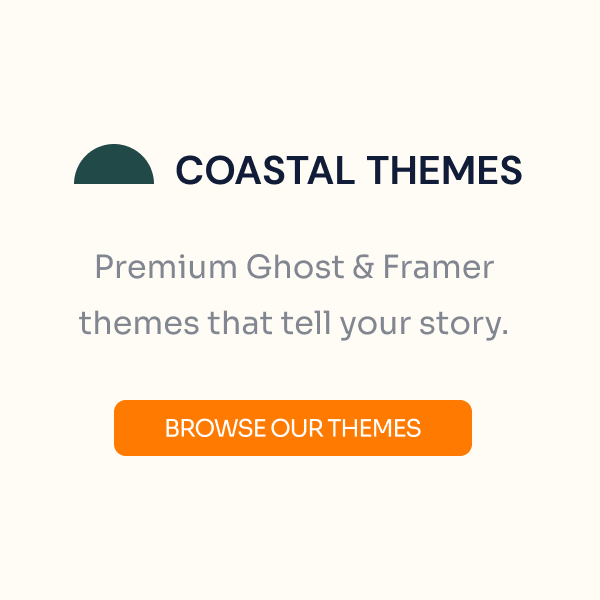Have you seen Elementor?
Our flagship product, Layers has been acquired by the team at Elementor.
With a powerful, fast page builder, Elementor is the best way to get your site online with as little effort as possible.

Introduction to Jumbo
Your theme is a collection of templates and styles that enable you to build a powerful and beautiful eCommerce or Service-driven online business. Our theme demo shows you what can be done with the theme, but should not be taken literally – how you configure and build your website is up to you and the outcome will depend on the content you create.
In a nutshell, setup follows a flow of Add Content→ Place Content→Refine Content.
This guide will help you through the following:
-
Optimal WordPress Settings - Theme Installation
- WooCommerce install and basic setup
- How to use the theme’s various post types and post options to create your content
- How featured images and videos work in this theme
- Homepage configuration and customization
- Setting a custom logo and configuring the theme
- Using widgets
- Setting up menus
- Customization options
Below, we provide an overview of how the theme interacts with WordPress. If you are new to WordPress, these overviews will prepare you for managing your site and creating optimal content. If you are a veteran user or know your way around Obox Themes, you may skip straight to Quick Setup for the recommended setup order
How the theme handles images
Each WordPress theme defines a set of minimum image sizes that are used throughout the theme templates. This helps each page load as efficiently as possible by grabbing the smallest image possible, while also ensuring the image fits the template layout for the intended look. You can see from our demo that these images will scale or crop to fill whatever space they are presented in.
Minimum Size for posts
Images you upload to use as Featured Images in Jumbo should be a minimum of 660 px wide.
For best results, prepare your featured images to be 1000 px wide to ensure a good balance between file size and quality. Do not exceed 2MB in file size (typically more than 2000px wide or tall) or your upload may fail (this is the upload limit in most WordPress installs)
- Slider Backgrounds: Accepts any tile-able image. For full-width backgrounds, upload images at least 1920 pixels wide and 520pixels tall.
- Slider images: 480×270 for video (16:9), or automatic height for images. Upload images at least 480 pixels wide to slider posts for use as the featured image.
- Posts with sidebar: 660×360, cropped from top-center in list, shown at full-height on post. Upload images at least 660 pixels wide
- Posts Full Width: 940×529, cropped from top-center in list, shown full-height in post, accomodates 16:9 video. Upload images at least 940 pixels wide.
- Product Categories: Shown in the product category widget, must be at least 315 pixels wide. For best results, use the same dimensions for all product category images. If you intend to show these images on category pages in the shop, upload images at least 940 pixels wide.
Scaling vs Cropping
Some widgets may crop your images to a specific height to ensure a uniform look. In these cases, your 660px wide image will be cropped to 360px high, or your 1000px image scaled and cropped to 529px high. In all other instances, the images will scale by width to keep the original aspect ratio.
Product Images
Your WooCommerce shop images are controlled primarily by your WooCommerce settings, not the theme. These settings will determine the maximum dimensions of images uploaded to Product posts, and whether they are cropped on upload. These images are then used in shop templates and product widgets and will scale automatically depending on the screen size. As a result, your images in widgets and products are not a specific or exact dimension, but the maximum quality of the images depends on what you set in WooCommerce. These settings are defined in the Configure WooCommerce step.
Sliders, backgrounds, etc
Refer to each post type tutorial contained in this guide to learn more about how images are used and displayed in those specific widgets or post templates.
oEmbed Images
Featured videos set using the Video Link or oEmbed URL option will generate a thumbnail automatically. Auto-Thumbs are displayed in widgets when you choose to display video posts and select the Thumbnails option. They may also be used in archives or anywhere the video would be smaller than 320px wide.
This thumbnail has a max dimension of 680px wide for YouTube and will include black letterbox bars. Vimeo provides better results.
If you load our demo content, you must edit any video posts and click Update to grab the video thumbnail for your location before using those posts to test this functionality.
Post Types, Page Templates & content Structure
Jumbo offers a wide range of post types with varying layouts and functionality:
- Standard Posts
- Team members
- Services
- Features
- Portfolios
- Partners
- Testimonials
- Sliders
These post types have a page template or widget which displays the posts in a special format. See our demo for examples of what these look like.
Before your site will look like our demo at all, you must add some content, and one of each of these page templates. Once you’ve populated the post types with text and a featured image or video, you can then add them to your homepage via the → section in your WordPress administration area, which is explained in detail later.
Detailed instructions on adding each content type are covered on the following articles, or you may use our Demo Content file below.
Quick Setup
Setup time for this theme is estimated to take between 30 minutes and 4 hours, depending on the level of customization you intend to give it. For veteran WordPress users, setup should take less than 30 minutes.
This guide provides detailed instructions for setup and configuration of WordPress and the theme. You may also access quick tips and links to documentation from within WordPress under → , or view basic WordPress help from the Help tab in the upper-right of most screens in your WordPress Dashboard.
To get started:
- Go to → and choose Your Latest Posts to enable the theme’s dynamic homepage layouts.
- Ensure Settings → Permalinks is set to Post Name and Saved
- Follow the core setup steps in this order for best results:
- Jumbo: Install Your Theme
- If you already installed the theme and are a Themeforest customer, make sure you update the theme before continuing!
- Jumbo: Install WooCommerce
- Jumbo: Configure WooCommerce
- Load /Create Your Content – Use our demo file below, or refer to the post type articles in this guide
- Jumbo: Verify WooCommerce Shop Pages
- Jumbo: Setup Homepage
- Jumbo: Configure Theme Options
- Jumbo: Configure Widgets
- Jumbo: Setup Menus
- Jumbo: Install Your Theme
Demo Content
If you prefer to pre-load our demo content into your theme to get a head start, you may use our demo content file below.- Right-click the below link and choose Save File As or your browser equivalent
- Unzip the downloaded file to find the jumbo_demo-content.xml file
- Go to → and click WordPress
- If prompted to install the plugin, follow the steps to install and activate.
- Browse to the jumbo_demo-content.xml file and click Upload and Import.
- You will be prompted to import authors and users from our demo site. Select your name from each drop-down to assign posts to yourself so these users are not creted on your setup.
- Click the "Download and import file attachments" box to attempt to import our demo images.
Customization
Homepage: Jumbo includes three home page layouts (Blog, Preset and Widget-Driven) explained in more detail in the Setup Your Homepage article. The widget-driven homepage is the equivalent of a drag and drop layout while the Preset is the fastest method of setting up a demo site.
Post Content: We provide several pre-formatted elements for your post content such as dividers, drop-caps and columns called Styles. These are similar to shortcodes without the bulk and conflict concerns. Learn more about this here: Obox Editor Styles
Colors: For customization of the theme’s overall color scheme, you may use the WordPress Customizer, which includes several options for changing individual colors
Layout: If you have some knowledge of CSS, you may further customize the theme’s styles or layouts using the Customization area of the Theme Options panel for storing Custom CSS.
Support
For help with common issues you may encounter, check out our Knowledgebase first. If you can’t find the answer there, head over to our Support Forums and post your question in your theme forum. You should receive a response within 24 hours on weekdays.
For help with modifying templates or changing functionality in your theme, feel free to post the question on our forums, but be advised you may be referred to one of our Approved Modifiers if your request requires testing/development to figure out or is beyond your skill level to implement.



